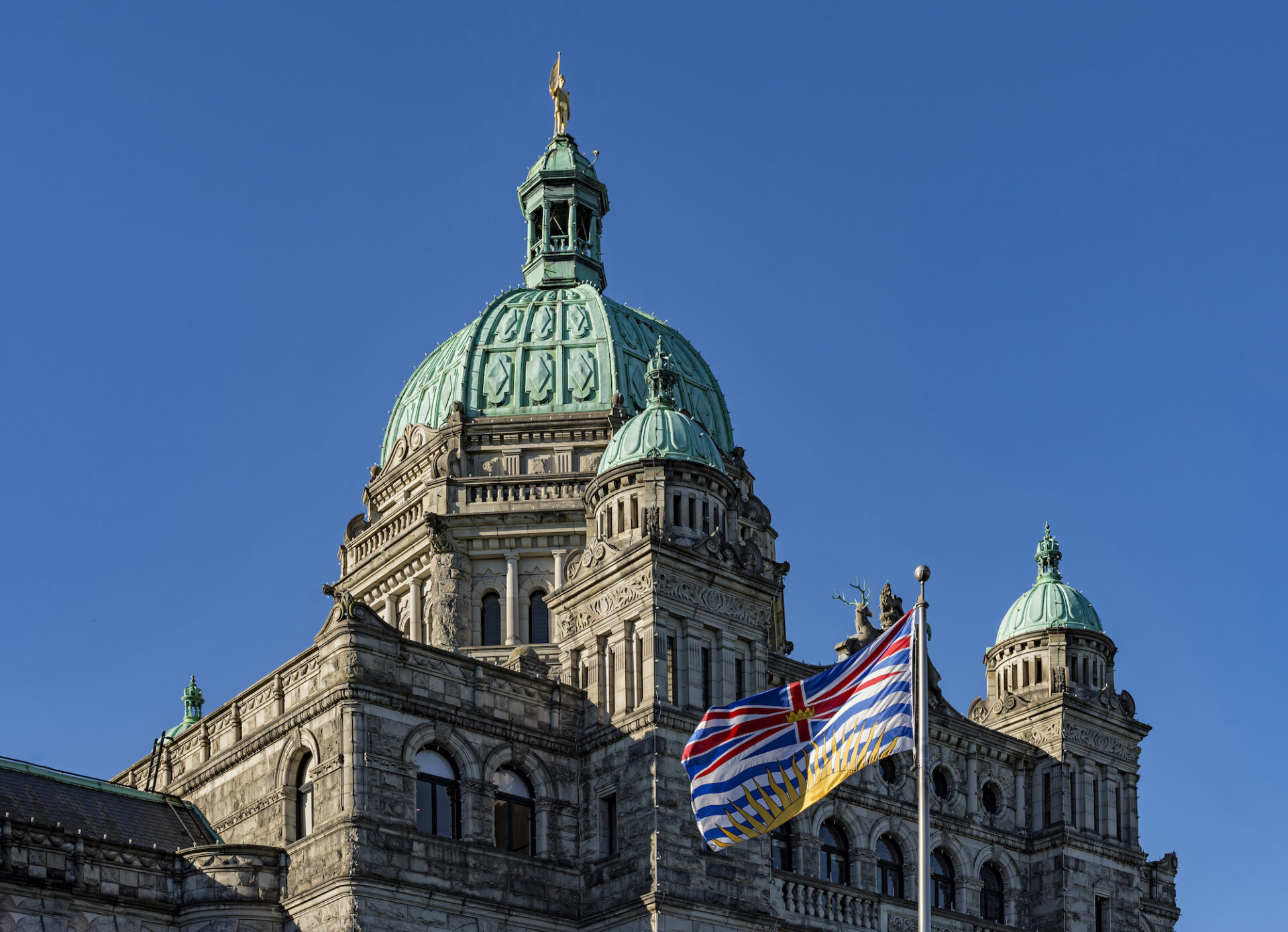B.C. has better tools than universal basic income to create a more just society, report finds
A basic income for all is not the best policy option to effectively tackle poverty and other justice-related issues in B.C., according to an expert panel of economists whose report on the idea of a basic income guarantee was released today.

B.C. Legislature in Victoria. Credit: Shutterstock.
A basic income for all is not the best policy option to effectively tackle poverty and other justice-related issues in B.C., according to an expert panel of economists whose report on the idea of a basic income guarantee was released today.
The report, Covering All the Basics: Reforms For a More Just Society, found that a more successful strategy for creating a more just society would prioritize expansive reforms to current systems, administration, policies, and programs. The goals would be to improve social supports to vulnerable groups, deliver benefits to underserved single working-age adults and low-income renters, and provide targeted basic incomes to people with disabilities and youth aging out of care, among dozens of other recommendations.
“Our evidence suggests that a mixed, tailored system is the best approach for positive change,” said Dr. David Green, professor at the Vancouver School of Economics at UBC, and the panel’s chair. “British Columbians would stand to benefit the most with different approaches in different circumstances.”
The panel’s co-members are Dr. Jonathan Rhys Kesselman at SFU’s school of public policy and Dr. Lindsay Tedds at the University of Calgary’s school of public policy.
The report is the culmination of more than two years of study, and is based on more than 40 research papers commissioned by the panel.
The panel made 65 recommendations to the government, including:
- Extended health supplements including basic dental coverage and rental housing assistance for all households at low incomes including the working poor and independent of the Income Assistance system
- Targeted programs that combine cash transfers with wraparound social support for groups in transition, like youth aging out of care, persons fleeing domestic violence, and those facing high barriers to employment, who have more specific needs
- An overhaul of the Disability Assistance system, with a renewed emphasis on those with mental health and addiction issues, that emphasizes dignity and support for work for those who want it, reformulating the program as a targeted basic income
- A reformed Temporary Assistance program, providing monetary benefits in a dignified and respectful way to those able to work and better facilitating their transition to employment
- Increased benefit amounts for both Disability Assistance and Temporary Assistance recipients and reducing the disincentives for beneficiaries to pursue paid employment
- Adjustments to tax system-delivered benefits, such as a provincial earnings supplement for the working poor and targeting BC’s Child Opportunity Benefit more directly to families with children living in poverty
- Regulatory reform to improve job conditions and wages for low-skill, low-income workers which dovetail with other measures to encourage work
For the full report and all of its recommendations, click here.
For the executive summary, click here.
For more about the panel and the research papers, visit bcbasicincomepanel.ca



